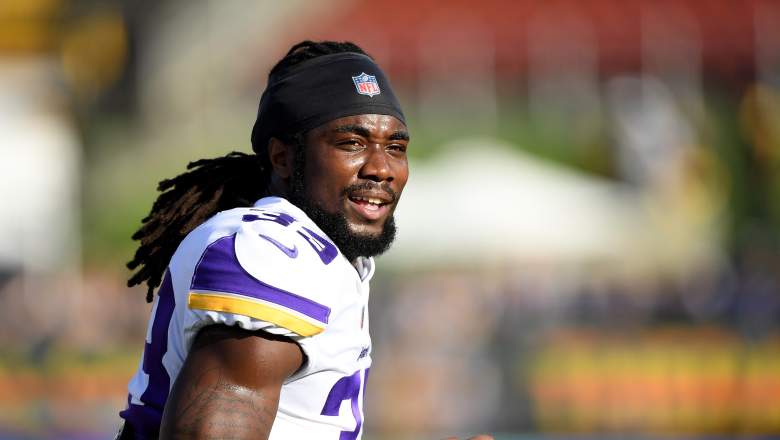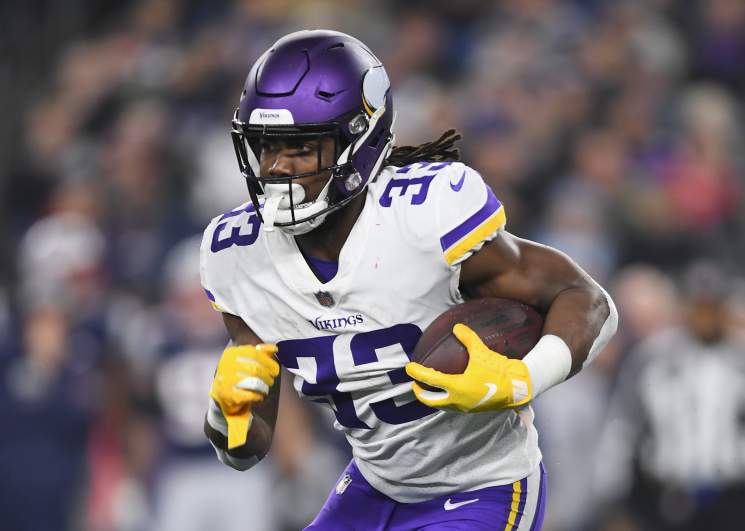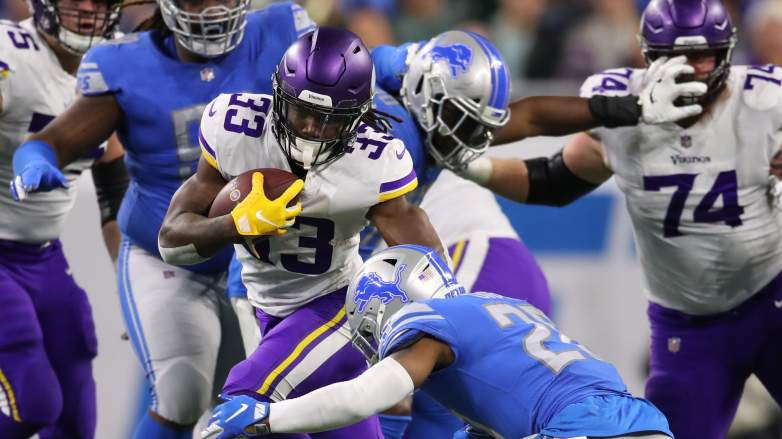
Minnesota Vikings running back Dalvin Cook has become the latest player at the position contesting for a new contract — and justifiably so.
Running backs have the shortest careers in the NFL, and after missing 19 games in his first three seasons, enduring another season on his rookie contract would further cut into Cook’s earning window.
But in 2020, running backs’ impact on the game has diminished in a passing league, raising the question of whether rewarding big contracts to running backs can be detrimental to a team’s success.
Pro Football Focus found big investments in running backs don’t pay off. PFF’s senior analyst Sam Monson recently took a look at Cook’s career and came to a similar conclusion: “Dalvin Cook is a great back, but he’s not a great investment for the Minnesota Vikings.”
Follow the Heavy on Vikings Facebook page for the latest breaking news, rumors and content!
The Case Working Against Cook Getting Paid

GettyCook’s injury history is the biggest roadblock for the running back getting paid.
Several red flags were raised about Cook’s resigning, but the most flagrant of them all is his injury history.
Cook has played in 29 of 48 games in his career, missing 19 games in three seasons (give or take a couple of games the Vikings held him out despite his desire to play and a few games that he was knocked out due to injury). His lack of playing time has contributed to rather mediocre PFF metrics, Monson says:
“Over the past two seasons, Cook has the 15th-best PFF rushing grade (81.3) and is tied for 27th in rushing yards per attempt (4.6). He is also tied for 27th in yards after contact per attempt (3.0), tied for 18th in broken tackle rate (0.19 per attempt) and hasn’t ranked higher than sixth in PFF’s elusive rating in either season.”
Elusiveness is this biggest factor in determining a running back’s value, being that much of the success and statistics are reliant on their offensive line and scheme. PFF’s elusive rating “credits the back for broken tackles in both the run and pass game as well as yards after contact, and it looks at them on a per-touch basis to try and see which backs are making plays above and beyond the blocking.”
According to Monson, “Cook ranked just 14th [in elusive], and the year before that, he was sixth — behind players like Nick Chubb and Derrick Henry both years,” but he also was recently ranked the fifth most-elusive starting running backs in 2020 by PFF’s Ben Linsey.
Cook’s understudy Alexander Mattison also cuts into his potential after Mattison had a surprising rookie campaign in 2019, Monson wrote:
“Mattison averaged the same 4.6 yards per carry last season as Cook did; he generated 3.2 of those yards after contact (compared to Cook’s 3.0), broke tackles at almost the same rate (0.18 per carry compared to 0.19) and gained a first down or touchdown on 19% of his carries compared to Cook’s 21.4%.”
Cook’s Shown He Can Produce Like McCaffrey

GettyIf Cook can put up 2,000 yards from scrimmage, he could see his leverage increase.
The one edge Cook has over Mattison is his ability as a pass-catcher, which is becoming the most valuable skill at the position, but he is still yet to join the ranks of elite receiving backs like Austin Eckler (993 receiving yards in 2019) and Christian McCaffrey, who became the third player in NFL history to total 1,000 rushing and receiving yards in a single season.
McCaffrey reset the running back market with his $16 million a year contract this offseason after surpassing 2,000 yards from scrimmage last season. Cook was averaging 141.5 yards per game (99.1 rushing yards, 42.4 receiving yards) through 10 games last season, which would have landed him in nearly 2,200 total yards from scrimmage had he played every game.
While Cook is aiming to break 2,000 yards from scrimmage this season and is proven to be a top-five running back when he is healthy, until he does so, it’s going to be difficult for the 24-year-old running back to make a case for his initial asking price of $16 million a year this season.
READ NEXT: Dalvin Cook Set to Holdout From All Vikings Activities: Report
Follow Trevor Squire on Twitter: @trevordsquire
Comments
PFF: ‘Dalvin Cook May Not Be a Great Investment For the Vikings’